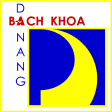Opinion on the breakthrough of science and technology in Vietnam
Abstract
Resolution 57-NQ/TW on breakthrough in science, technology, innovation and national digital transformation has affirmed the role and determination to promote the development of science and technology in Vietnam. This speech shares some thoughts on our science and technology development as well as some opinions on the breakthrough of science and technology in Vietnam.
Biography
Prof. Ho Tu Bao successfully defended his PhD thesis in Computer Science at Paris 6 University in 1987 and obtained his Dr Habil in Computer Science at Paris 9 University in 1998, both specializing in Artificial Intelligence (AI). He worked at the Institute of Information Technology, Vietnam Academy of Science and Technology from 1978 to 1993 and was promoted to Associate Professor in 1991. He served as Professor and Head of the Laboratory for Machine Learning and Data Mining at the Japan Advanced Institute of Science and Technology (JAIST) from 1993 to 2018, and has been a Emeritus Professor at JAIST since April 2018. Prof. Ho Tu Bao is currently the Director of the Data Science Laboratory at the Vietnam Institute for Advanced Study in Mathematics (VIASM). He is also a member of the VINASA Think Tank group. At present, he serves as an advisor and teaches in the Business Analytics Program at the International University of VNU Ha Noi and Foreign Trade University. Since graduating from university in 1978, he has been engaged in research, application, and teaching in the fields of Artificial Intelligence, Machine Learning, and Data Mining, and more recently in Data Science, Business Analytics, and Digital Transformation.


